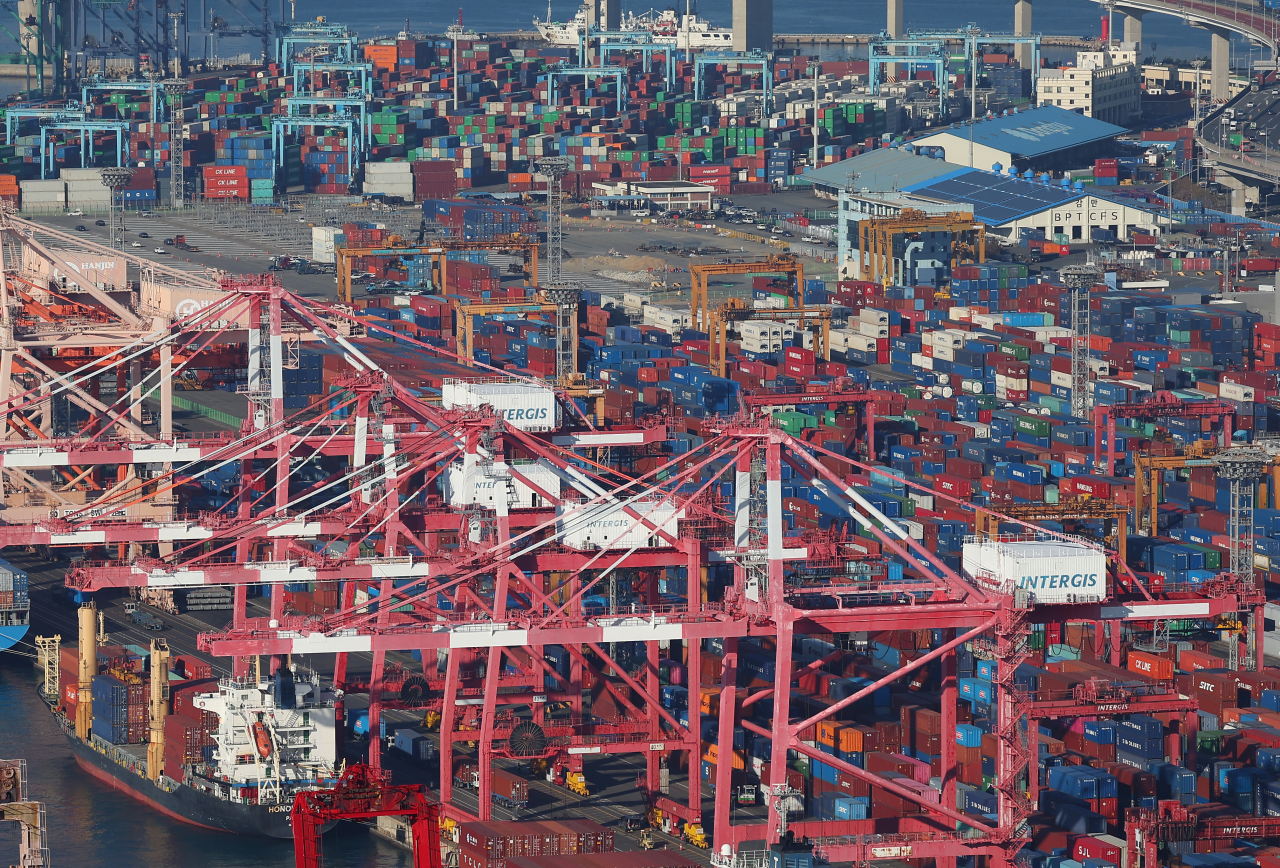Korea’s car exports surge over 80% after COVID-19: report
By Byun Hye-jinPublished : Dec. 18, 2023 - 14:47

South Korea’s car exports climbed 84.2 percent from January to September this year compared to 2019, while imports of electric vehicles and EV batteries from China gradually increased, a report showed Monday.
The export volume surged to $50.5 billion in the cited period after the prolonged COVID-19 pandemic and global supply glitches, according to the Korea Automotive Technology Institute, or Katech.
Compared to last year, exports of battery-powered cars and hydrogen fuel cell vehicles skyrocketed 40.9 percent to $11.4 billion and hybrid cars saw a 4 percent increase to $8.2 billion. Internal combustion engine cars, on the other hand, witnessed a 1.5 percent drop to $30.9 billion.
The import volume of cars decreased 12 percent to $11.7 billion, but imports from China, mostly driven by EVs and hybrid cars, jumped 18.8 percent to $1.7 billion in the nine months. The imports increased on-year 2.3 percent in 2021 and 8.5 percent in 2022.
“Chinese car brands did not take up a large market share here, however, Tesla Model Y, Polestar 2 and other US and European cars made in China posted strong sales here,” said Lim Hyun-jin, a senior researcher at Katech and author of the report.
Regarding car parts exports, however, China has been crossed off the list of the top five export destinations this year for the first time. Car imports dropped 23.6 percent on-year to $1.1 billion last year as well.
Noting that the Chinese government’s protectionist policy on local automotive industry development and supply chain has led to the drop in exports, Lim said, “Compared to Hyundai Motor Co. and Kia’s production volume in China, car parts exports (from Korea) to the country is showing a downward trend. It means our car parts supply to carmakers within China is decreasing.”
The US, the leading exporting country since 2010, received 35.7 percent of car parts exports. The largest trading partner has shown an annual 10.1 percent export growth rate from 2018 to 2022.
Following the US-China trade war, the US car parts exports to China decreased, giving more business opportunities for Korean companies, according to Lim.
The EV battery sector posted an approximately $3 billion trade deficit during January-September, with 96.4 percent of imports coming from China. Of the $2.1 billion in exports, the US took up 64.7 percent.
According to the Ministry of Trade, Industry and Energy, 97 percent of the precursor materials imports for nickel cobalt manganese batteries came from China during the January-October period. The Korean government recently announced 38 trillion won ($29.3 billion) of funding to boost the rechargeable battery industry over the next five years.
“The rechargeable battery sector is one of the key industries contributing to economic growth with its materials and cell manufacturing business,” Lim said. “Aside from electric car batteries, we should improve the categorization of future car (export and import) items to better analyze the fast-changing industry and understand the impact of the US’ Inflation Reduction Act and the EU’s Critical Raw Materials Act.”



















